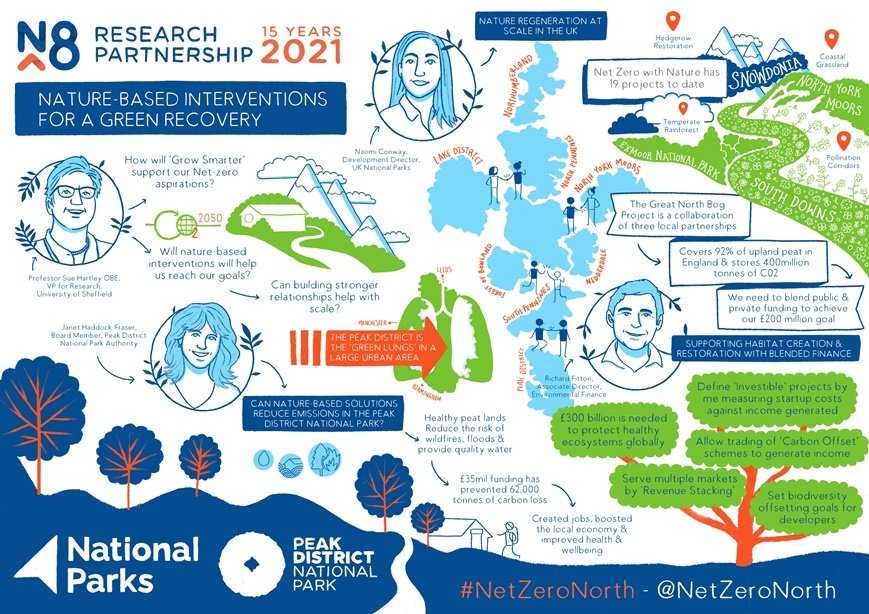
Today, the Environment Secretary, George Eustice announced the Government’s plans to boost biodiversity, protect the UK’s peatlands and create new woodlands.
The speech, which took place at Delamere Forest in Cheshire, outlined the government’s ambitions to restore nature and safeguard our environment for future generations.
Below, Dr Annette Bramley, director of the N8 Research Partnership, shares her thoughts on today’s announcements:
The Environment Secretary could not have chosen a better location than the North of England to set out the latest stage of the government’s plans to tackle the climate emergency.
The N8 Research Partnership is a passionate advocate for our region being at the forefront of a green recovery from the COVID-19 pandemic. Our Net Zero North initiative seeks to connect the Northern Powerhouse’s vast science and research capabilities, skills providers and businesses to drive the recovery while also putting the UK at the forefront at the global drive for net zero carbon.
One of the three key components of Net Zero North is Grow Smarter, in which we have created a vision for a thriving and integrated net-zero landscape of the future – driving innovation and carbon-efficient land management in the rural economy, including natural carbon capture, regenerative agriculture, and bio-derived materials.
Therefore, while we welcome all of today’s announcements, it was especially pleasing to see Mr Eustice make important interventions regarding the management, protection and restoration of the UK’s upland and lowland peatlands. Late last year the N8 held a webinar in conjunction with the Peak District National Park in which we explored the importance of nature-based solutions and why it is crucial to fully maximise the benefits of the UK’s natural resources if we are to reach Net Zero by 2030.
The restoration work is not a straightforward solution and it will take many years to see results – but the consequences of this programme will be substantial. The resultant healthy peatlands and new areas of woodland and hedges will result in a powerful combination of enhanced biodiversity, carbon reduction and in many cases improved water quality and flood risk reduction.
We can already see how shops can adapt to the proposed ban on the selling of peat, outlined today, by looking at the great work undertaken by the Co-Op, which has undertaken £35m of investment to develop a specially formulated high-quality product, and is rolling-out peat-free compost to its food stores and forecourts. This is an example of how the private sector can support the government by playing its part in enacting the recommendations of the Dasgupta Review on the Economics of Biodiversity.
Today’s announcements demonstrate the sort of leadership that the world expects of us as we approach COP26. That’s to be applauded, but the horrific and devastating consequences that the climate emergency poses means that the government still needs to do more, and faster, in order to deliver upon its vision of ‘building back greener’ from the pandemic.
The good news is that there are numerous shovel ready projects – such as Net Zero North and Eden Project North – that will enable the government to achieve its ambitions.
The N8 Research Partnership looks forward to working with government and other stakeholders from the public and private sector in order to make our shared vision of protecting the planet for future generations while creating a fairer, balanced economy with opportunities for all a reality.